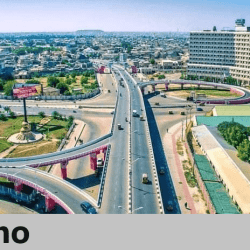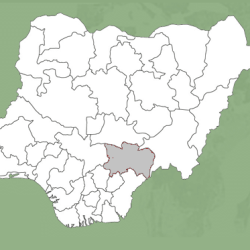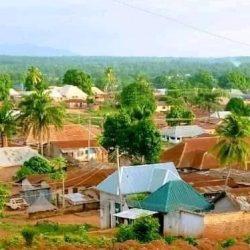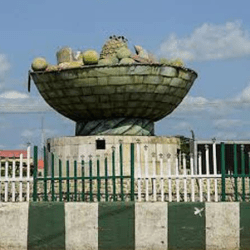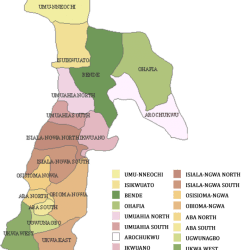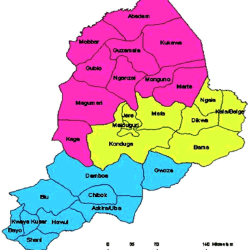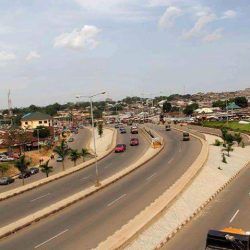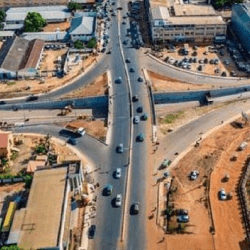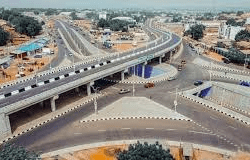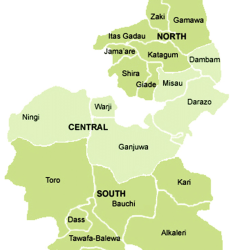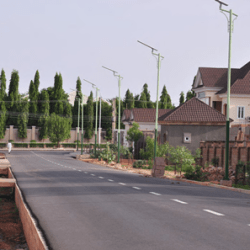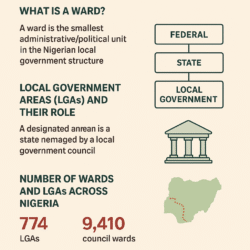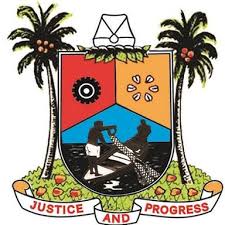Kano State has 484 council wards located in 44 (local Government Areas (LGAs). Some LGAs have up to 15 council wards while some have 10.
List of Kano’s 484 Council Wards
The 484 council wards in Kano State’s 44 LGAs are as follows:
AJINGI
Ajingi
Balare
Chula
Dabin Kanawa
Dundun
Gafasa
Gurduba
Kunkurawa
Toranke
Ungawar Bai
ALBASU
Albasu Central
Bataiya
Chamarana
Daho
Fanda
Faragai
Gagarame
Hungu
Saya-Saya
Tsangaya
BAGWAI
Bagwai
Dangada
Gadanya
Gogori
Kiyawa
Kwajali
Rimin Dako
Romo
Sare-Sare
Wuro Bagga
BEBEJI
Anadariya
Baguda
Bebeji
Damau
Durmawa
Gargai
Gwarmai
Kofa
Kuki
Rahama
Ranka
Rantan
Tariwa
Wak
BICHI
Badume
Bichi
Danzabuwa
Fagolo
Kaukau
Kwamarawa
Kyalli
Muntsira
Saye
Waire
Yallami
BUNKURE
Barkum
Bono
Bunkure
Chirin
Gafan
Gurjiya
Gwamma
Kulluwa
Kumurya
Sanda
DALA
Adakawa
Bakin Ruwa
Dala
Dogon Nama
Gobirawa
Gwammaja
Kabuwaya
Kantudu
Kofar Mazugal
Kofar Ruwa
Madigawa
Yalwa
DANBATTA
Ajumawa
Danbatta East
Danbatta West
Fagwalawa
Goron Maje
Gwanda
Gwarabjawa
Kore
Saidawa
Sansan
DAWAKI KUDU
Dabar Kwari
Danbagiwa
Dawaki
Dawakiji
Dosan
Gano
Gurjiya
Jido
Tamburawa
Tsakuwa
Unguwar Duniya
Yanbarau
Yankatsari
Yargaya
Zogarawa
DAWAKI TOFA
Dan Guguwa
Dawaki East
Dawaki West
Dawanau
Ganduje
Gargari
Jalli
Kwa
Marke
Tattarawa
Tumfafi
DOGUWA
Dariya
Dogon Kawo
Duguwa
Falgore
Maraku
Ragada
Ririwai
Tagwaye
Unguwar Natsohuwa
Zainabi
FAGGE
Fagge A
Fagge B
Fagge C
Fagge D
Fagge E
Kwachiri
Rijiyar Lemo
Sabongari East
Sabongari West
Yammata
GABASAWA
Gabasawa
Garun Danga
Joda
Karmaki
Mekiya
Tarauni
Yantar Arewwa
Yautar Kudu
Yumbu
Zakirai
Zugachi
GARKO
Dal
Garin Ali
Garko
Gurjiya
Kafin Malamai
Katumari
Kwas
Raba
Sarina
Zakarawa
GARUN MALAM
Chiromawa
Dorawar-Sallau
Fankurun
Garun Babba
Garun Malam
Jobawa
Kadawa
Makwaro
Yad Akwari
Yalwan Yadakwari
GAYA
Balan
Gamarya
Gamoji
Gaya Arewa
Gaya Kudu
Kademi
Kazurawa
Maimakawa
Shagogo
Wudilawa
GEZAWA
Babawa
Gawo
Gezawa
Jogana
Ketawa
Mesar-Tudu
Sararin-Gezawa
Tsamiya-Babba
Tumbau
Wangara
Zango
GWALE
Dandago
Diso
Dorayi
Galadanchi
Goron Dutse
Gwale
Gyaranya
Kabuga
Mandawari
Sani Mai Magge
GWARZO
Getso
Gwarzo
Jama’ A
Kara
Kutama
Lakwaya
Madadi
Mainika
Sabon Birni
Unguwar Tudu
KABO
Dugabau
Durun
Gammo
Garo
Godiya
Gude
Hauwade
Kabo
Kanwa
Masanawa
KANO MUNICIPAL
Chedi
Dan’Agundi
Gandun Albasa
Jakara
Kankarofi
Shahuchi
Sharada
Sheshe
Tudun Nufawa
Tudun Wazirchi
Yakasai
Zaitawa
Zango
KARAYE
Daura
Kafin Dafga
Karaye
Kurugu
Kwanyawa
Tudun Kaya
Turawa
Unguwar Hajji
Yammedi
Yola
KIBIYA
Durba
Fammar
Fassi
Kadigawa
Kahu
Kibiya I
Kibiya Ii
Nariya
Tarai
Unguwar Gai
KIRU
Ba’Awa
Badafi
Bargoni
Bauda
Dangora
Dansohiya
Dashi
Galadimawa
Kiru
Kogo
Maraku
Tsaudawa
Yako
Yalwa
Zuwo
KUMBOTSO
Challawa
Chiranchi
Danbare
Danmaliki
Guringawa
Kumbotso
Kureken Sani
Mariri
Na’Ibawa
Panshekara
Unguwar Rimi
KUNCHI
Bumai
Garin Sheme
Gwarmai
Kasuwar Kuka
Kunchi
Matan Fada
Ridawa
Shamakawa
Shuwaki
Yandadi
KURA
Dalili
Dan Hassan
Dukawa
Gundutse
Karfi
Kosawa
Kura
Kurunsumau
Rigar Duka
Tanawa
MADOBI
Burji
Cinkoso
Galinja
Gora
Kafin Agur
Kanwa
Kaura Mata
Kubaraci
Kwankwaso
Madobi
Rikadawa
MAKODA
Babbar Riga
Durma
Jibga
Kadandani
Koguna
Koren Tatso
Maitsidau
Makoda
Satame
Tangaji
Wailare
MINJIBIR
Azore
Gandurwawa
Kantama
Kunya
Kuru
Kwarkiya
Minjibir
Sarbi
Tsakiya
Tsakuwa
Wasai
NASARAWA
Dakata
Gama
Gawuna
Giginyu
Gwagwarwa
Hotoro North
Hotoro South
Kaura Goje
Kawaji
Tudun Murtala
Tudun Wada
RANO
Dawaki
Lausu
Madachi
Rano
Rurum Sabon-Gari
Rurum Tsohon-Gari
Saji
Yalwa
Zinyau
Zurgu
RIMIN GADO
Butu-Butu
Dawaki Gulu
Doka Dawa
Dugurawa
Gulu
Jili
Karofin Yashi
Rimin Gado
Sakaratsa
Tamawa
Yalwan Danziyal
Zango Dan Abdu
ROGO
Beli
Falgore
Fulatan
Gwangwan
Jajaye
Rogo Ruma
Rogo Sabon Gari
Ruwan Bago
Zarewa
Zoza
SHANONO
Alajawa
Dutsen-Bakoshi
Faruruwa
Goron Dutse
Kadamu
Kokiya
Leni
Shakogi
Shanono
Tsaure
SUMAILA
Gala
Gani
Garfa
Gediya
Kanawa
Magami
Masu
Rimi
Rumo
Sitti
Sumaila
TAKAI
Bagwaro
Durbunde
Fajewa
Falali
Faruruwa
Kachako
Karfi
Kuka
Takai
Zuga
TARAUNI
Babban Giji
Darmanawa
Daurawa
Gyadi-Gyadi Arewa
Gyadi-Gyadi Kudu
Hotoro (Nnpc)
Kauyen Alu
Tarauni
Unguwa Uku
Unguwar Gano
TOFA
Dindere
Doka
Gajida
Ginsawa
Janguza
Jauben Kudu
Kwami
Lambu
Langel
Tofa
Unguwar Rimi
Wangara
Yalwa Karama
Yanoko
Yarimawa
TSANYAWA
Daddarawa
Dunbulun
Gozaki
Gurun
Kabagiwa
Tatsan
Tsanyawa
Yanganau
Yankamaye
Zarogi
TUDUN WADA
Baburi
Burumburum
Dalawa
Jandutse
Jita
Karefa
Nata’Ala
Sabon Gari
Shuwaki
Tsohogari
UNGOGO
Bachirawa
Gayawa
Kadawa
Karo
Panisau
Rangaza
Rijiyar Zaki
Tudun Fulani
Ungogo
Yadakunya
Zango
WARAWA
Amarawa
Danlasan
Garin Dau
Gogel
Imawa
J/Galadima
Jemagu
Jigawa
Katarkawa
Madari Mata
Tamburawar Gabas
Tangar
Warawa
‘Yan Dalla
‘Yangizo
WUDIL
Achika
Dagumawa
Dankaza
Darki
Indabo
Kausani
Lajawa
Sabon Gari
Utai
Wudil
Meaning of Council Ward
A council ward is the smallest administrative unit within a Local Government Area (LGA). In the context of Kano State, it functions as the most localized form of government where residents elect a representative (the ward councilor) to the local council. Wards typically comprise several neighborhoods or small communities and act as constituencies for local elections. The councilor elected from each ward serves as a voice for the people, addressing issues like local infrastructure, healthcare, and community welfare.
Wards are also vital in the election of state and national representatives, as they serve as polling units during elections. Therefore, the importance of wards in the political landscape of Kano State cannot be overstated.
How Council Wards are Created
The creation of council wards in Nigeria is guided by constitutional provisions and population-based criteria. Wards are usually formed based on the population size of an area, geographical factors, and the need for effective representation. The National Population Commission (NPC) and the Independent National Electoral Commission (INEC) play key roles in determining ward boundaries, ensuring that each ward is adequately represented.
In Kano State, as in other Nigerian states, wards are created to ensure that every community has a say in governance and access to political representation. The process of creating or altering ward boundaries usually follows a census or significant demographic changes, allowing the system to adapt to population growth or shifts.
Distribution of Council Wards in Kano State
Kano State has a total of 484 council wards spread across its 44 Local Government Areas. The distribution of wards varies depending on the size and population of the LGAs. For example, larger and more populous LGAs, like Kano Municipal and Nassarawa, have more wards compared to smaller and less populated areas like Kunchi or Tsanyawa.
The allocation of wards within each LGA is designed to ensure equal representation and effective governance. This means that more densely populated LGAs are given a higher number of wards to better manage local affairs and electoral processes.
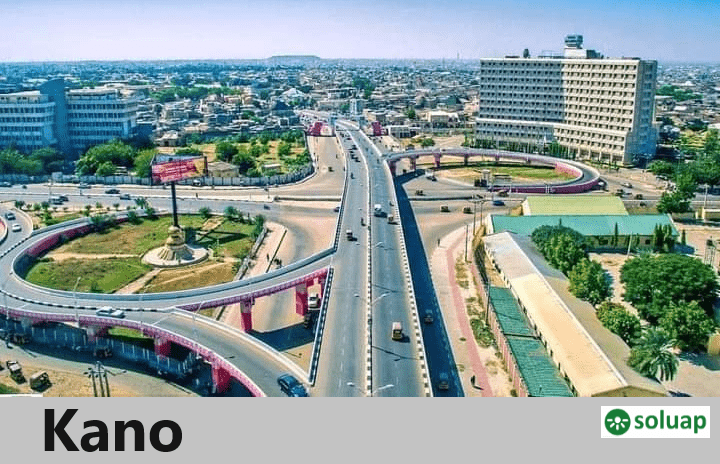
Importance of Council Wards
Council wards are vital for effective local governance, ensuring representation at the community level. Wards enable residents to voice their concerns, participate in elections, and influence decisions that affect their immediate environment. In Kano State, as in other Nigerian states, wards are the building blocks of local governance, and they play a crucial role in shaping development policies.
Wards also serve as important electoral constituencies for both local and national elections. During elections, candidates contest for the position of councilor, who is responsible for representing the ward’s interests in the local government council. Additionally, the ward system is key to community planning, resource allocation, and conflict resolution at the grassroots level.
Kano State
Kano State, located in Northern Nigeria, is one of the most populous and economically significant states in the country. Its capital, Kano city, is a major hub for trade, agriculture, and industry. As with other states in Nigeria, Kano is divided into local government areas (LGAs) that serve as the administrative units responsible for governance at the local level. At the grassroots level within these LGAs, governance is further broken down into smaller administrative units called “council wards.”
Council wards are critical to the socio-political framework of Kano State, serving as the foundation for electoral representation, governance, and community development. This article provides an in-depth exploration of council wards in Kano, their functions, distribution, and importance in the governance structure of the state.

